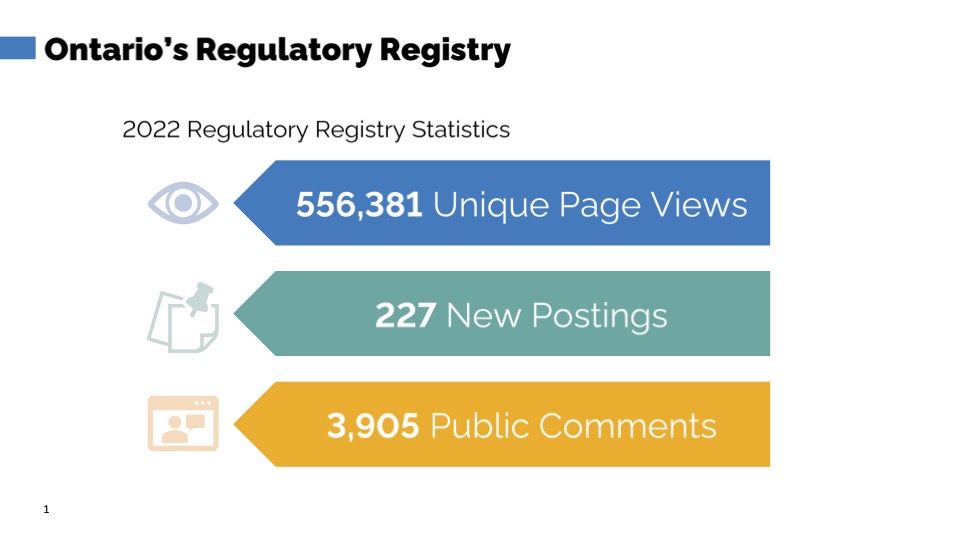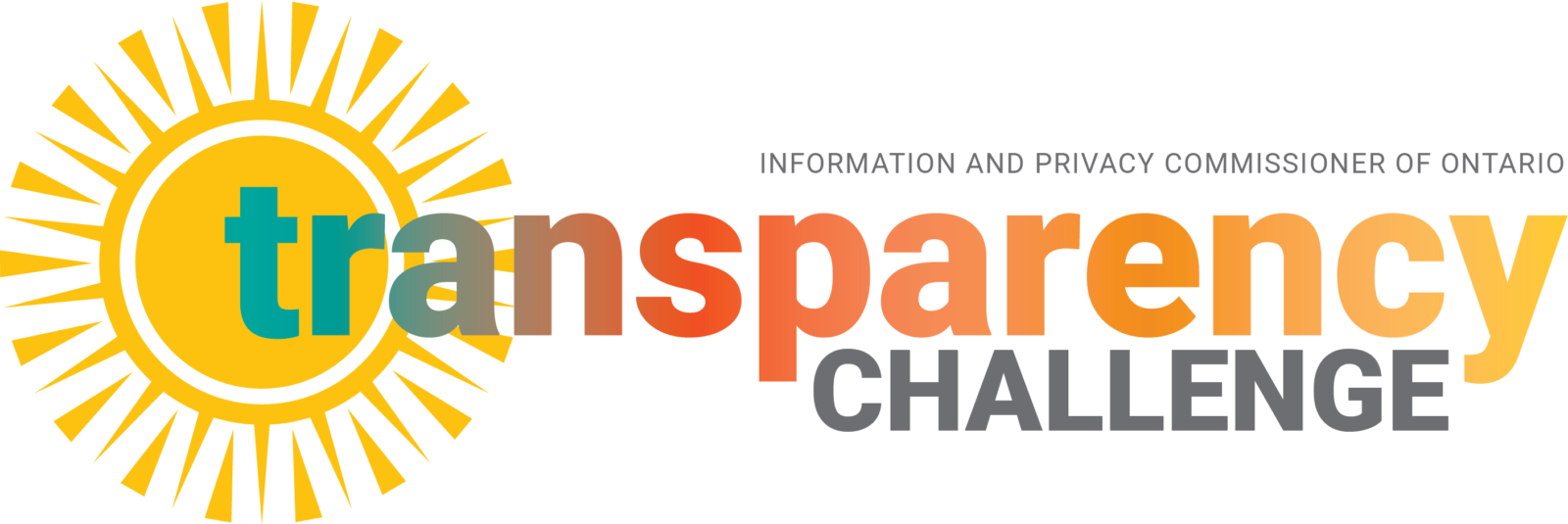
Civilians are entitled to transparency from their government. This piece is inspired by protest artwork and labour movement artworks. With access to transparent process, civilians are empowered to take action on policies and regulations that impact their daily life in our communities.
Original artwork by Surface Impression (Aedán Crooke) for the Information Privacy Commissioner of Ontario. Components of this art are copyrighted to the artist (Aedán Crooke) – namely the fist illustration which has been used in their previous work and continues as a motif in their art practice. Usage outside this project is prohibited.
Ministry of Red Tape Reduction
Citizens can offer input on draft laws and policies with Ontario’s Regulatory Registry
The Ontario Regulatory Registry gives individuals and organizations a chance to access, give input on, and even affect changes to provincial laws, regulations and policies as they are being developed.
The Ministry of Red Tape Reduction operates the Ontario Regulatory Registry, which is a hub of information on proposed, new or amended policy instruments, such as laws, regulations, policies and forms, that affect the province’s businesses, not-for-profits, public sector entities, and long-term care homes.
The Registry is accessible to all Ontario Public Service ministries as a tool they can use to publish postings on draft provincial policy instruments to gather public input. The postings also include a regulatory impact analysis. Once a policy instrument is approved, ministries publish a decision posting which helps make people aware of it.
The Registry has been around since 2005 and continues to be an example of a more open and transparent government. In 2022, the Registry had 227 new postings, 556,381 unique pageviews, and 3,905 public comments were submitted.

Publishing policy instruments only after the fact or limiting consultations on proposed policy changes are to no one’s benefit. The Registry gives members of the public and organizations an opportunity to actively engage in government policy- and decision-making on issues that directly affect them. The government, in turn, benefits from more diverse feedback, a more comprehensive picture, and a chance to improve its policy instruments to the benefit of Ontarians.



